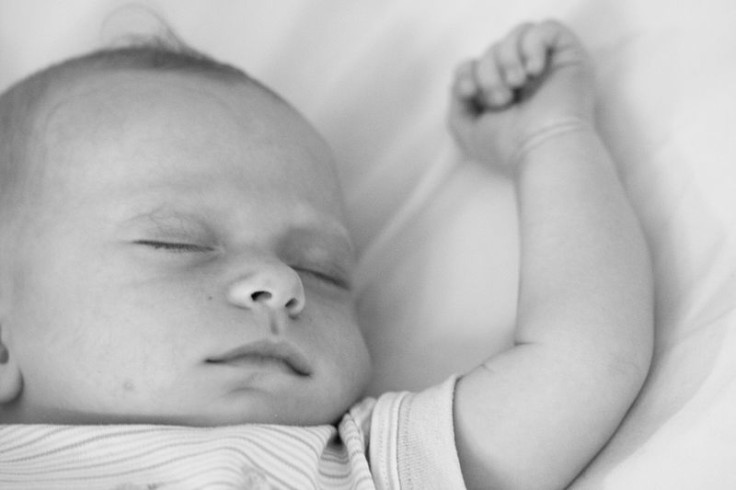Nurture Vs. Nature: Genetics Largely Determines Infant's Nighttime Sleep Duration

A study of twins in Canada found that genetics largely influence how long babies and toddlers will sleep at night.
Dr. Evelyne Touchette of Laval University in Quebec, Canada headed the research that aimed to find out how genetic and environmental factors contribute to the daytime and nighttime continuous sleep duration of infants and toddlers. Touchette found that environmental factors largely affect daytime sleep duration (i.e. naps), while genetics affect nighttime sleep duration.
The study included 995 twins as part of the Quebec Newborn Twin Study. Sleep duration was reported by parents of the twins at six, 18, 30, and 48 months of age.
Researchers found that environmental cues had a very strong influence on daytime sleep behaviors. Parental implementation of distinct sleep routines during the day were fairly successful. That, however, was not always the case with babies' nighttime sleep schedules.
At six months old, babies' nighttime sleep was heavily influenced by genetics. However, nighttime sleep duration became less influenced by genetics at 18 months, even sometimes being overshadowed by environment. Touchette did not give any concrete assertions as to why the change occurred at 18 months, but she did offer some possibilities.
According to HealthDay News, Touchette attributed the fact that environmental factors matter more at 18 months to the maturation of the brain. At 18 months, the thinking goes, maturation of the brain could be key in an infant's ability to sleep throughout the night.
"[18 months old] is a good time to implement sleep strategies in order to improve the child's nighttime sleep habits if they are not already in place," said Touchette.
This research should not be taken to say that parents should toss out their attempts at sleep scheduling until their kids hit the 18-month-old mark. To the contrary, experts suggest that parents maintain their efforts to get their children into meaningful sleep routines, as the evidence shows that both environment and genetics play a role in sleep patterns overall.
"Everything is a complex interaction between genes and environment," said Hawley Montgomery-Downs, an associate professor of psychology at West Virginia University in Morgantown. Although the research found that genes do influence nighttime sleep, what portion is attributable to genes and what portion is attributable to environment is still tough to decide.
For now, researchers say that efforts to train babies to have long-lasting, continuous nighttime sleep would not be in vain. "[Parents] should not give up on trying to correct inadequate sleep duration or bad sleep habits early in childhood," said Touchette.



























